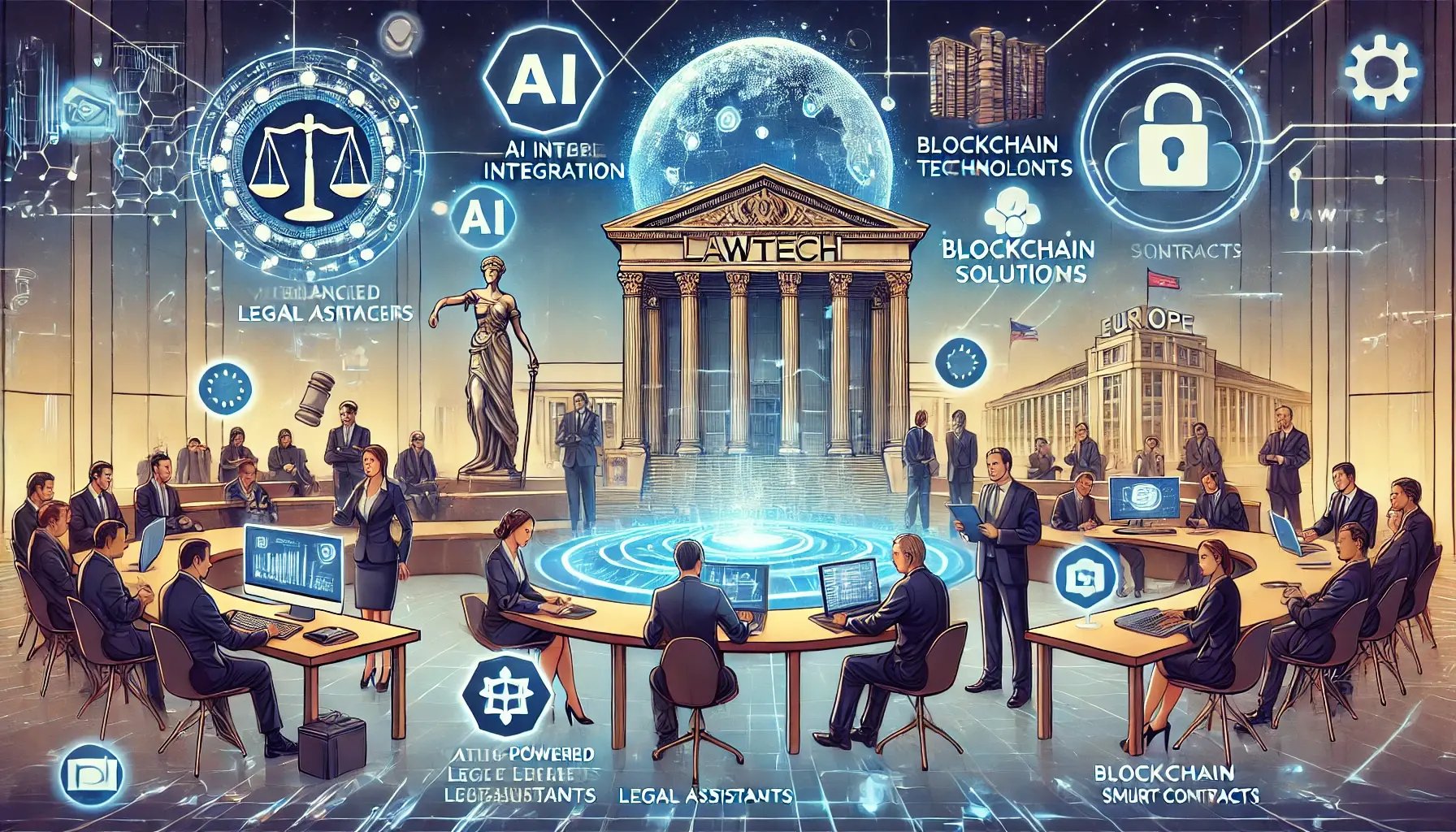The fintech sector is rapidly evolving, driven by technological advancements and shifting consumer...
The Future of LawTech in Europe
 The Future of LawTech in Europe: An In-Depth Look at the Next Decade
The Future of LawTech in Europe: An In-Depth Look at the Next Decade
As the legal industry continues to evolve, technological advancements are playing a pivotal role in shaping the future of legal services. Over the next decade, the LawTech landscape in Europe is expected to undergo significant transformation, driven by innovations in artificial intelligence, blockchain, cloud computing, and other emerging technologies. This article delves into the key trends and developments that will define the LawTech sector in Europe by 2034.
Advanced AI Integration
Artificial intelligence (AI) is already revolutionizing various aspects of the legal profession, and its role is set to expand dramatically in the coming years. AI-powered tools will go beyond current applications such as contract analysis and predictive analytics to encompass more complex tasks. These tasks will include real-time legal advisory, automated litigation support, and sophisticated decision-making processes. Companies like Harvey AI are at the forefront of this innovation, using natural language processing and machine learning to enhance various legal functions, thereby improving efficiency and reducing costs (TNW | The heart of tech).
The integration of AI will not only streamline routine legal tasks but also provide significant insights through data analytics, helping legal professionals make more informed decisions. Advanced AI systems will enable law firms to operate more efficiently and offer enhanced services to clients, ultimately transforming the traditional practice of law (Future Market Insights).
Widespread Adoption of Blockchain
Blockchain technology promises to revolutionize the legal industry by providing secure, transparent, and immutable record-keeping. Over the next decade, blockchain will be widely adopted for various legal processes, including smart contracts, digital identities, and property transactions. This technology will significantly reduce the risk of fraud and enhance the security of legal transactions. Legal professionals will increasingly rely on blockchain for tasks such as verifying the authenticity of documents and ensuring the integrity of legal records (Legal Geek) (Future Market Insights).
Expansion of Cloud-Based Legal Services
The adoption of cloud-based solutions in the legal industry is expected to grow significantly. Cloud technology offers numerous benefits, including scalability, cost-effectiveness, and enhanced security. Legal departments and law firms will continue to move towards cloud-based platforms, allowing for flexible and collaborative working environments. These solutions will provide robust encryption, authentication, and backup measures to safeguard sensitive legal information, addressing many of the security concerns that previously hindered cloud adoption (Future Market Insights).
Cloud-based platforms will also facilitate remote work and virtual collaboration, which have become increasingly important in the post-pandemic world. This shift will enable legal professionals to manage their workloads more efficiently and provide better client services.
Rise of LegalTech Startups
The LegalTech startup ecosystem in Europe is set to flourish, driven by increased investment and innovation. Startups will offer niche solutions to address specific legal needs, such as virtual legal assistants, DIY legal services platforms, and specialized tools for sectors like intellectual property and immigration law. These startups will play a crucial role in democratizing access to legal services, making them more affordable and accessible to a broader population (Future Market Insights) (TNW | The heart of tech).
In the UK, initiatives like LawtechUK are supporting the growth of the LawTech industry by providing startups with resources and guidance to navigate the regulatory landscape. The program, backed by substantial government funding, aims to position the UK as a global leader in legal technology (TNW | The heart of tech).
Regulatory and Ethical Frameworks
As technology becomes more integral to legal services, there will be a stronger focus on developing regulatory and ethical frameworks to ensure responsible use. Governments and regulatory bodies will work closely with the industry to create standards that balance innovation with privacy, security, and fairness. This will include regulations on AI transparency, data protection, and the ethical use of technology in legal contexts (TNW | The heart of tech).
The establishment of these frameworks will be essential to maintaining public trust in legal technologies and ensuring that they are used responsibly. Regulatory bodies will need to address concerns related to bias in AI systems, data privacy, and the transparency of automated decision-making processes.
Enhanced Access to Justice
Technological advancements will play a crucial role in democratizing access to legal services. Online dispute resolution platforms, virtual courtrooms, and AI-powered legal advice will reduce barriers to accessing justice, particularly for underserved communities. These innovations will make legal services more affordable and accessible, helping to bridge the justice gap (LegalTechTalk) (Future Market Insights).
Collaborative Innovation
The legal industry will see increased collaboration between law firms, technology providers, academic institutions, and government agencies. This collaborative approach will foster innovation and ensure that legal technology solutions are both practical and effective in addressing real-world challenges. Conferences and events like LegalTechTalk and Legal Geek Europe will continue to serve as platforms for innovation and networking, driving the industry forward (LegalTechTalk) (Legal Geek).
Focus on Legal Education and Training
The education and training of legal professionals will evolve to include a strong emphasis on technology and innovation. Law schools and continuing education programs will integrate courses on AI, blockchain, data analytics, and cybersecurity, preparing the next generation of lawyers to thrive in a tech-driven legal landscape. This shift will be essential to ensuring that legal professionals are equipped with the skills needed to navigate the rapidly changing industry (Future Market Insights) (TNW | The heart of tech).
Global Integration
Europe will continue to play a leading role in the global LegalTech market, with European companies and technologies being adopted worldwide. There will be increased cross-border collaboration and standardization of legal tech solutions, making it easier for firms to operate in multiple jurisdictions. The European Union's emphasis on digital transformation and innovation will further bolster this trend, positioning Europe as a hub for legal technology (TNW | The heart of tech).
Conclusion
The next decade will witness the transformation of the legal industry in Europe through the pervasive adoption of advanced technologies, regulatory advancements, and an emphasis on accessibility and innovation. These changes will create a more efficient, transparent, and inclusive legal system, benefiting legal professionals and clients alike. As Europe continues to lead in legal technology innovation, the legal profession will be better equipped to meet the challenges and opportunities of the future.



